This section is for paid subscribers only. Our subscription is only $3700/- for one full year.
You get unlimited access to all paid section and features on the website with this subscription.
Subscribe to read full article
This section is for paid subscribers only. Our subscription is only $37/- for one full year.
You get unlimited access to all paid section and features on the website with this subscription.
Not ready for a full subscription?
You can access this article for $2, and have it saved to your account for one year.
- Release Date1958
- GenreCrime, Drama
- FormatB-W
- LanguageHindi
- Run Time138 min
- Length4380.89 meters
- Number of Reels14
- Gauge35 mm
- Censor RatingU
- Censor Certificate Number89733
- Certificate Date07/02/1979 (Re-certification)
- Shooting LocationFilmistan Studio, Kardar Studio & Central Studio
For fifteen years Karan Mehra had been given to believe by his mother that his father was dead. For all these years she had actually lived as a widow, and he himself had been brought up as a fatherless child. But a day came when she had to tell him the truth.
It came to him as a grim shock to know that his real name was not Karan Mehra, but Karan Khanna an d that his father was still alive, though as far as the family and the world were con concerned, he was as goo d as dead, because he was undergoing a life-imprisonment in a jail in Hyderabad. He had been found guilty on a charge of having murdered a dancer called Mala fifteen years ago, even though he had been pleading not -guilty to the last. Karan's mother did not want her only child to be called a murderer's son and therefore she had taken him to Bombay and had kept this as a secret from everyone.
Memories of his childhood flooded Karan's mind and in that world he remembered his father as a very gentle and loving person and an irresistible desire to see him once more immediately, took possession of his heart. He started for Hyderabad.
When they met, the father at first gave Karan a very cold shoulder. He had been buried alive for all these years and he was very bitter against the world. He said that he cared for none as none ha d cared for him. He had persistently said that he was innocent and he repeated it even now, but nobody believed him. Karan was at once convinced that his father was speaking the truth and kissing his old hand he promised him that he would not rest content till he had brought his fat her out of the prison. The old man embraced his son and both wept on each other's shoulder.
Karan went to a local newspaper office to refer to the fifteen year old files, in which the entire case of his father had been reported in detail. There he met Asha, a newspaper reporter, who helped him a lot and they gradually developed a liking for each other.
Karan found out that the only witness, who had spoken in favour of his father during the trial, was Ramdas, a grocer. He went to see him. Ramdas had told the Court that he had seen the real murderer running away and though he could not recognise him, he could swear that it was not Karan's father. But he was short -sighted and at that moment did not have his glasses on, and therefore his evidence was not held valid by the Court.
Bu t, there was one man, who had believed in Ramdas, and he was the Police Inspector himself who was in charge of the case. This ma n had overheard a whispered conversation between the two main witnesses, by whose evidence ultimately Karan's father was convicted. This conversation convinced the Inspector that the witnesses were bribed by the real murderer. A letter had been given by the murderer to one of these, an eye witness, Kishori by name, a famous dancing girl to the effect that he would support her all her life, if she would name Karan's father as the guilty person. The Inspector could not get hold of this vital evidence, the letter; and h is mere words were not good enough against the powerfully built prosecution case.
Kishori was still one of the famous singing girls of the town. In all probability, she must be still having that letter, thought Karan. From that day, Karan became a regular visitor at Kishori's place. He flirted with her and professed that he was in love with her. Kishori too started liking him.
But when Kishori found out that all Karan's advances were playacting and his sole purpose was to secure that letter, she was wild with rage and accused Karan of being a dishonest and unfaithful cheat. Karan in his turn, gave her a piece of his mind. He told her what kind of a woman she was, that for money she had sold her soul and given his father a living death for all these years. Kishori was repentant and she offered the letter to Karan. .
With that letter Karan went to the Public Prosecutor and begged him to re-open the case. But to his surprise, before his very eyes, the Public Prosecutor burnt that letter and called his men to throw Karan out.
Karan was now sure that the Public Prosecutor too was in league with the real criminal. He even made up his mind to murder him but could not bring himself to do so.
Asha conducted a campaign in her newspaper against injustice and brought all the facts about the case. The public opinion was aroused. The Public Prosecutor used high handedness and the power of his position to stop this paper campaign. Asha was sacked.
Karan now started a lone battle. His method was that of passive resistance. With two boards hanging down his sides, proclaiming his father's innocence and the guilt of a known public figure of the town helped by the Public prosecutor to hide his guilt, Karan roamed from street to street shouting slogans. People followed him wherever he went. He was heard and sympathised with. He gathered a huge crowd outside the Public Prosecutor's house and spoke to them fierily. The Public Prosecutor got him arrested for creating trouble.
At this moment, Kishori produced the real letter of the murderer. What she had given Karan earlier was only a copy of it. The letter was flashed in newspapers.
The case was re-opened, and the real murderer was arrested.
Karan's father was acquitted.
[From the oficial press booklet]
Cast
Crew
-
BannerNavketan, Bombay
-
Director
-
Music Director
-
Director
-
Lyricist
-
Producer & Financier
-
Story Writer
-
Screenplay
-
Dialogues
-
Cinematography
-
Editing
-
Sound Recording/ Audiography
-
Art Director/Production Design
-
Choreography
-
Costumes
-
Make-up
-
Laboratory/ Processed atFamous Cine Lab, Tardeo
-
Music CompanyH M V
-
StillsKamat Foto Flash
-
Publicist/P.R. O.Navketan Publicity Dept
-
Song Recording






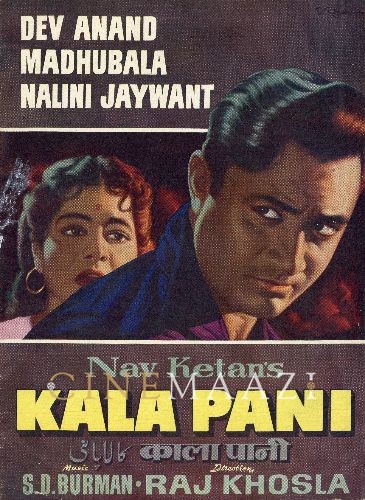
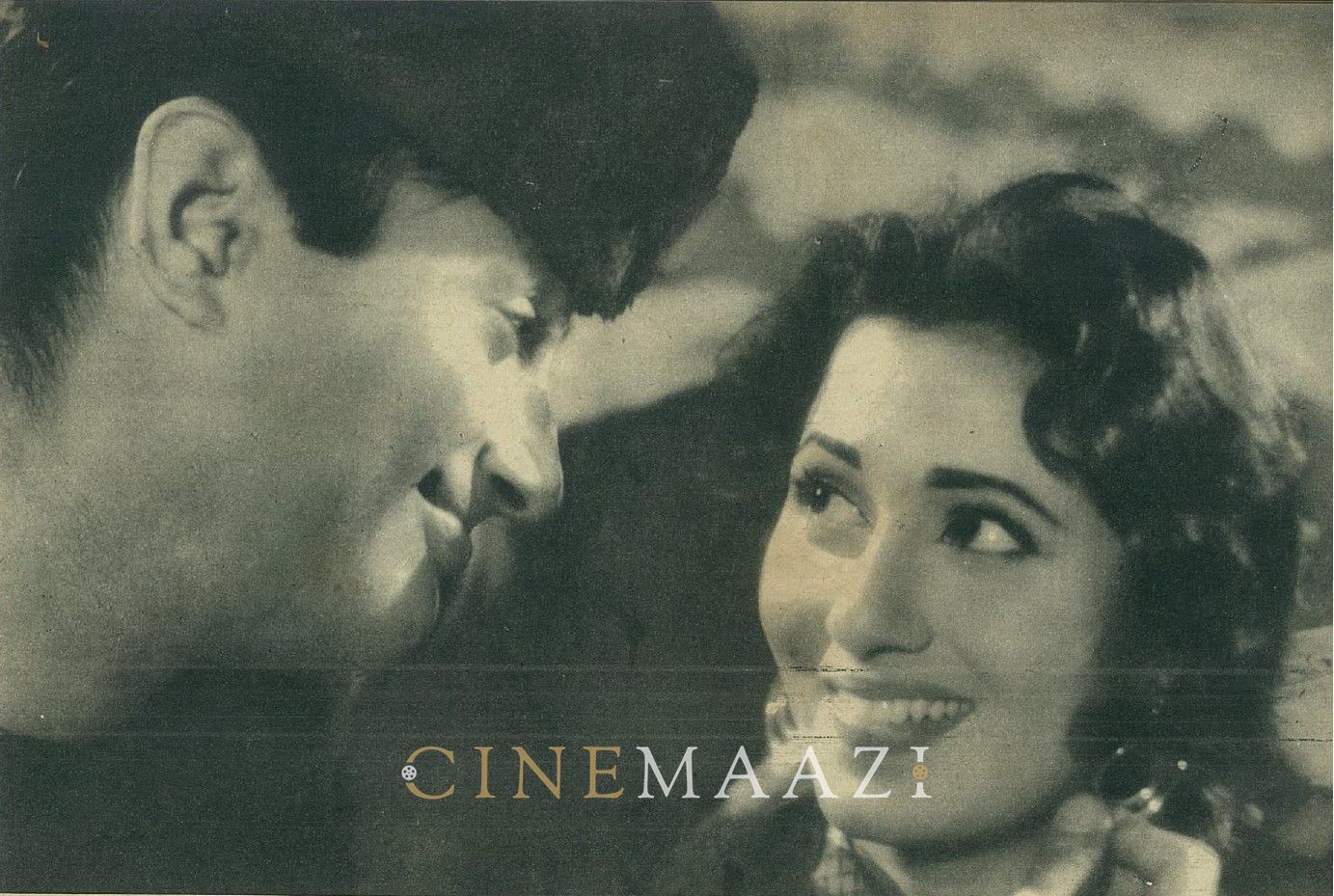
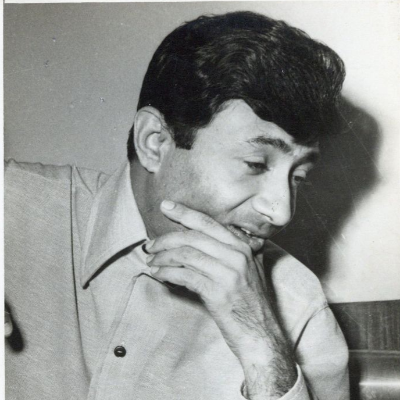
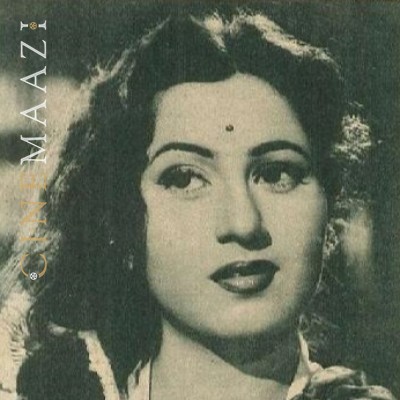
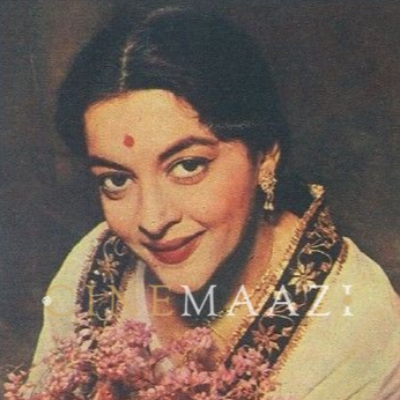
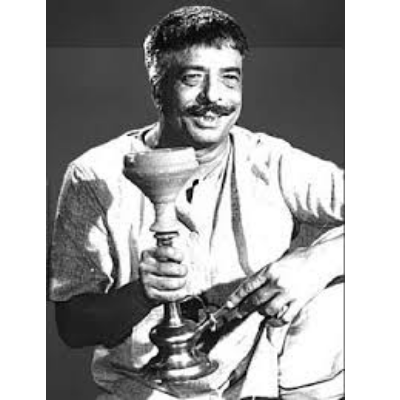
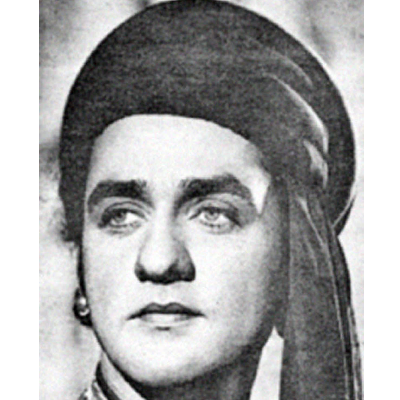
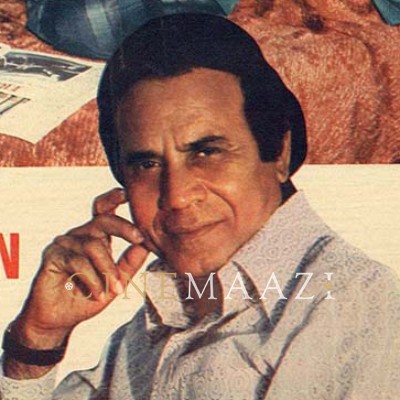
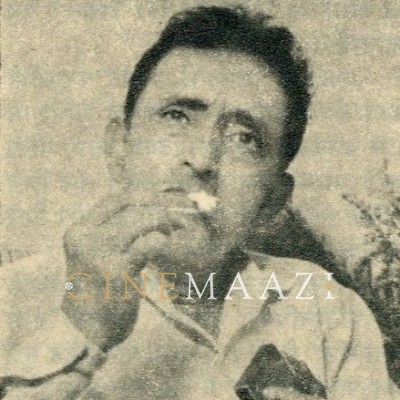
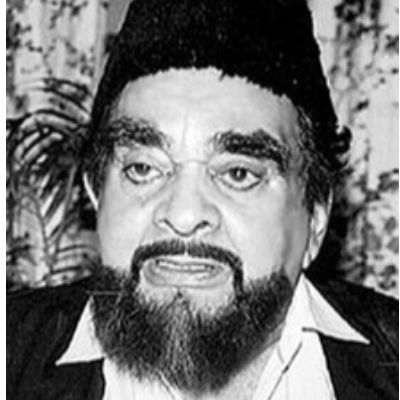


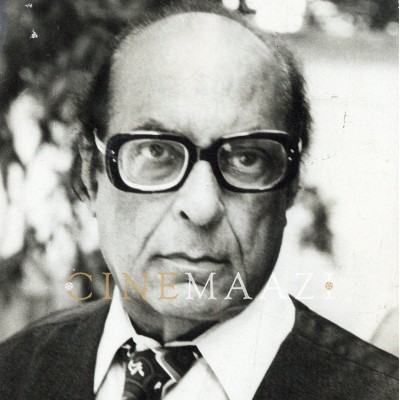
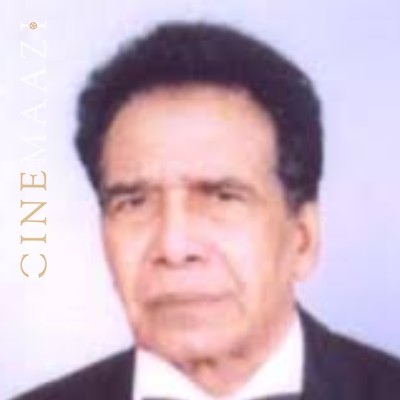
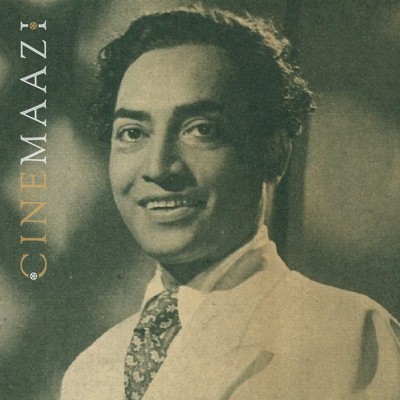

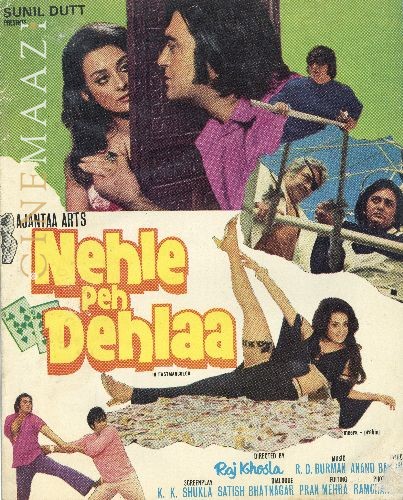
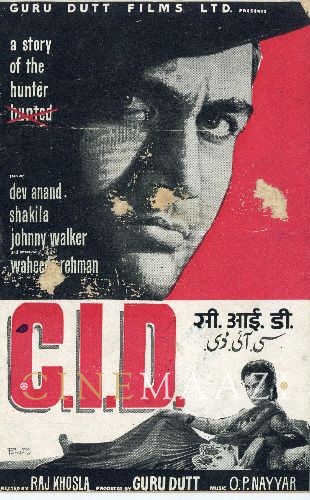
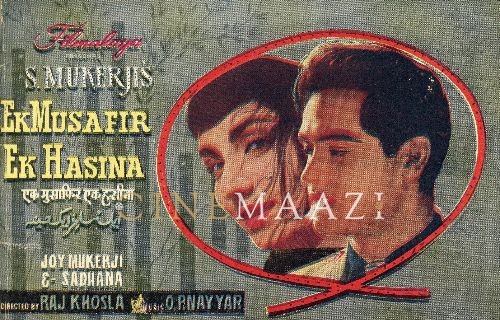

.jpg)



